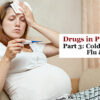Children who receive a vaccine and suffer side effects or adverse events following immunization are not likely to have them recur after a second dose of the vaccine, according to a new study published in the journal Pediatrics.
The finding is significant in that it reaffirms the overall safety of vaccines. Some parents have questioned the safety of vaccines and have refused to have their child immunized. However, the new research, which examined 29 studies on vaccinations mostly involving children, demonstrates that the benefits of vaccines in preventing many serious diseases outweigh the risk of adverse events happening again.
In order for vaccines to be fully effective, all doses of a vaccine must be taken. People who receive the first dose of the vaccine and experience a side effect or adverse event are most often afraid to receive a second or multiple doses, and that can “lead to avoidance or delay of subsequent immunizations,” according to the study.
Many parents fear that if a child who has been recently vaccinated shows signs of side effects or adverse events, the child is allergic to that vaccine.
“Our research shows that that is not the case,” Gaston De Serres, MD, an epidemiologist with the Canadian Immunization Research Center and a co-author of the study, told Consumer Reports. “Most of these events are one-off. They’re transient, they don’t recur, and they don’t cause permanent damage — especially compared with the diseases against which we are trying to immunize.”
People who receive vaccines and suffer serious side effects like anaphylaxis (characterized by swelling of the face or trouble breathing), seizures or hypotonic-hyporesponsive episodes (body goes limp, pale face and unresponsiveness) after the first dose are not likely to have a recurring episode. Results showed only 0-0.8% of those who had experienced such events had them recur after another dose. For milder side effects like fever, swelling limbs, pain at the injection site and vomiting, the study showed that the risk of recurrence was 4-48%. But upon receiving a second or multiple vaccinations, the symptoms were no more severe than the first.
Sean O’Leary, MD, a pediatric infectious diseases specialist at Children’s Hospital Colorado, told Consumer Reports that the study is very reassuring. “It confirms for parents and providers that in the vast majority of cases, it’s okay to revaccinate — even if there were some apparent reactions to the last shot,” he says.






